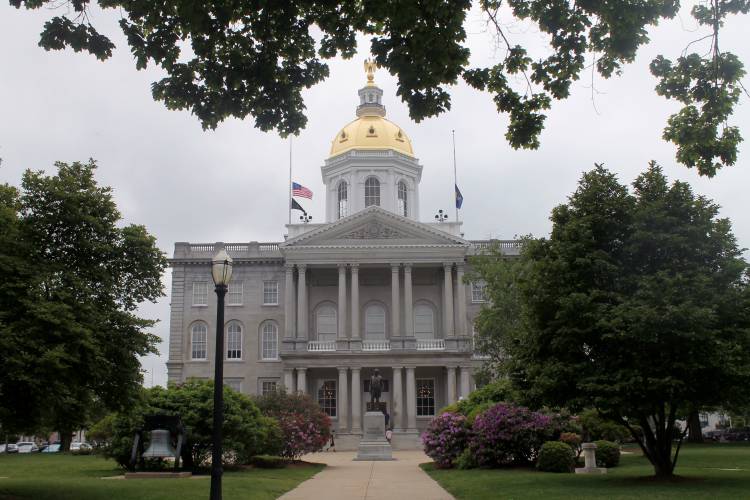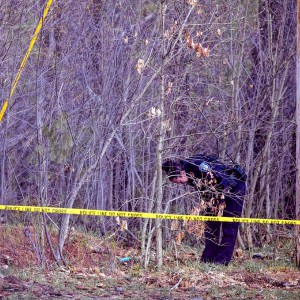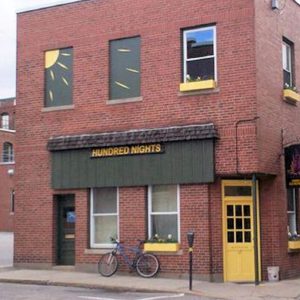Charities will not have to pay rent to casinos under new law

Holly Ramer/AP file photo
| Published: 04-23-2024 3:56 PM |
Deb Leahy can finally breathe easy, freed from the fluctuating rental fees each time her organization partners with a New Hampshire casino for donations.
Thanks to a new law, casinos are now prohibited from imposing rent charges on charities for utilizing their facilities during gaming events.
But for many charities and nonprofits across the state, securing a slot at a gaming facility to receive donations has become a struggle, especially with Concord Casino out of operation following a ruling that forced its closure.
For Leahy and her Concord High Lacrosse Boosters club, there’s a silver lining because their rental costs consumed a hefty portion, often half, of their earnings.
“I think it’s long overdue,” said Leahy, the treasurer of the Booster Club, welcoming the changes brought by House Bill 1203, which will benefit many charities and nonprofits. “I think it was a giant loophole in the oversight by the Lottery Commission.”
According to state law, 35% of the casino’s gross revenue is allocated to charities, with an additional 10% earmarked for the New Hampshire Lottery Commission to support public education.
While the Lottery Commission responsible for managing the state’s charitable gaming business model oversees various aspects such as licensing, regulatory compliance, and financial record-keeping, it lacks authority over the rental fees that casinos impose on charities.
In 2023, the Concord High Lacrosse Boosters Club partnered with the Concord Casino, located at 67 South Main Street in Concord, for game day slots. It paid $2,190 in rent to the gaming establishment, averaging $219 each day for the 10-day gaming slots they received.
Article continues after...
Yesterday's Most Read Articles
 A turbulent 50-year history: Inside the rise and fall of a tiny Catholic college in Warner
A turbulent 50-year history: Inside the rise and fall of a tiny Catholic college in Warner
 Update: Reactions for, against the more than 100 arrested at Dartmouth, UNH
Update: Reactions for, against the more than 100 arrested at Dartmouth, UNH
 Softball: Cassidy Emerson may have eight freshmen on her team, but the Falcons have glided to an 8-1 start
Softball: Cassidy Emerson may have eight freshmen on her team, but the Falcons have glided to an 8-1 start
 Franklin police arrest man after accidental shooting Wednesday
Franklin police arrest man after accidental shooting Wednesday
 Opinion: Sports have never been fair
Opinion: Sports have never been fair
 Hopkinton chocolatier transforms chocolates into works of art
Hopkinton chocolatier transforms chocolates into works of art
The Boosters Club generated a net revenue of $4,385 from its gaming dates at the Concord Casino last year. However, after paying the rental fee, the club was only able to retain half of its earnings, which is $2195.
Rental charges at casinos in New Hampshire are based on the “fair market value” of the property, resulting in varying fee structures across establishments, ranging from $200 to $750 per day.
“I know originally the explanation of it was that charities could negotiate - find the best casino with the lowest charge,” explained Leahy. “But that’s not true. There’s a shortage of slots, so you had to take whatever you got. The charities really have no negotiating power.”
The law that prohibits casinos from charging rent to charities, signed by Governor Chris Sununu this week, will take effect on June 15.
Patrice Rasche, Treasurer of the Friends of the Merrimack River Greenway Trail, was initially unaware that their organization was being charged one of the highest rents in the state, averaging $625 a day, when participating with the Concord Casino.
Despite feeling pleased about the prospect of having more funds available for their work due to the elimination of rent, Rasche now faces concerns about the organization’s future involvement with gaming establishments in the state.
“The bad news is that with the news that Concord Casino has made with the ongoing problems, it doesn’t look like we’re going to be able to participate this year because now all the charities are aware of this and have pretty much signed up for all the spots for the year,” explained Rasche.
Concord Casino has been shut down from the start of the year after a joint investigation by the Attorney General’s office and the New Hampshire Lottery Commission found that Andy Sanborn, the owner and operator of the casino had fraudulently, applied for and received $844,000 in pandemic relief funds, which were intended for struggling small businesses. The investigation found Sanborn, a former state senator, “unsuitable” for charity gaming.
With Concord Casino out of the picture, the state’s gaming landscape has shifted, leaving only 13 establishments in operation. This reduction in gaming options has intensified the already competitive process for hundreds of charities vying for gaming slots across New Hampshire.
After the Friends of the Merrimack River Greenway Trail’s successful partnership with Concord Casino last year, Rasche said she had written, to Laurie Sanborn, also an operator at the establishment, in hopes of securing a spot in this year’s rotating schedule.
Sanborn was also ordered to close the gaming establishment and complete its sale within six months, beginning Jan. 1 or risk a two-year license revocation. If a sale is pending at the end of six months, which is July 1, Sanborn can apply for a 3-month extension to complete the sale.
John Conforti, chief compliance officer at the Lottery Commission confirmed that the the Lucky 7 gaming machines at the casino have been removed.
“Those are no longer at the property,” said Conforti. “The manufacturers have come back to take those machines out.”
Sanborn is not required to sell the property as a gaming establishment. He retains the flexibility to sell it as raw space, a restaurant, or even a retail store if he so desires. However, should he opt to sell it as a gaming establishment, the buyer must be approved by the Lottery Commission.
While some charities that had partnered with Concord Casino have managed to secure slots at other facilities, the closure of Concord Casino has dealt a severe blow to Concord Regional Arc Inc., a disability rights organization that hosts events like dinner dances and karaoke programs for high school students with disabilities after they transition out of the school system.
Vicki Therrien, a board member at the organization, expressed the challenge, noting that while the amount received from a casino isn’t guaranteed and depends on factors like attendance and betting habits, the funding has been vital to offset the services they offer.
“Without that funding, we’re unable to do our regular activities and we have to cut some things out,” explained Therrien “We’re trying to figure out what we are going to do. Are we going to serve sandwiches instead of a meal?”
With charities and nonprofits scrambling to secure slots for receiving donations from casinos, the state’s gaming commission, tasked with studying the growth of charitable gaming and its recent changes, is discussing shortening the number of days each charity gets to use a casino’s facilities to accommodate more charities.
Typically charities that partner with gaming facilities are on the schedule for 10 days. But Patrick Abrami, chair of the gaming commission suggested reducing the number of days to seven at a recent meeting.
“It just all depends on which casino you get into,” said Leahy. “If you’re at a smaller casino, cutting it down to seven days has like a huge impact.”
Charities at smaller casinos make only about $5000 while charities partnered with larger casinos like the Brook, could easily receive at least $100,000 in donations.
While Rasche understands that reducing the duration of gaming events from 10 days to seven days for charities results in lesser proceeds for each charity, she believes it could be an optimal interim measure until an alternative solution is identified.
“In a way that seems fair to me, because it would let more charities participate,” explained Rasche, whose organization has been struggling to find a casino to partner with. “If it is seven days a week, everybody would get a weekend.”


 House passes bill to raise minimum marriage age to 18, sending it to governor
House passes bill to raise minimum marriage age to 18, sending it to governor Sununu says he’ll support Trump even if he’s convicted
Sununu says he’ll support Trump even if he’s convicted NH mayors want more help from state on homelessness prevention funds
NH mayors want more help from state on homelessness prevention funds Two democrats with parallel views run for same State Senate seat
Two democrats with parallel views run for same State Senate seat
